One of the most overlooked aspects of mental health is nutrition. Food plays an important role in our physical health as well as our mental and emotional health. When you are struggling with depression, thinking about eating the right foods can seem a bit odd. However, some of these small changes in your diet can help reduce your symptoms; and have a positive effect on your daily life.
Can foods help with depression?
Whatever your dietary preferences, there are so many varieties with options that can provide mood-boosting results. Needless to say that you need to overcome your eating habits and only consume these foods, but be aware of which foods affect your mood, any symptoms of depression. Can help you manage symptoms better.
Fish : Omega-3
There are no wild-caught fish to help fight depression, especially the more oily types such as salmon, mackerel, trout, sardines, and tuna (canned). Why? Because they are rich sources.
Omega-3 helps to make connections between fat brain cells as well as strengthen and strengthen receptor sites for neurotransmitters. So, increasing omega-3s in your diet can help improve serotonin production and mood.
What’s more, the researchers analyzed 26 previously published studies (involving more than 150,00 participants) that examined the link between fish consumption and the risk of depression. The study, published in the Journal of Epidemiology and Community Health, found that those who consumed the most fish were less likely to experience symptoms of depression. The findings proved that more clinical trials are needed to explore the role of omega-3 fatty acids in depression and mental health.
Nuts
Although other nuts such as cashews, brazil nuts, and hazelnuts are helpful in supplementing omega-3 fats, walnuts seem to be winners in this category. Walnuts are known to support overall brain health, one of the highest plant-based sources of omega-3s and a great source of protein to help maintain blood sugar levels in healthy balance .
One study found that those who consumed a quarter cup of walnuts daily had a depression score of 26 percent. The researchers examined data from the National Health and Nutrition Examination Survey, which originates from a large sample of more than 26,000 American adults. They found that adults who ate nuts and especially walnuts were likely to have higher levels of optimism, energy, hope, concentration, and greater interest in activities.
Beens
Beans are a great source of protein and fiber, both helping to maintain stable and consistent blood sugar levels. In addition to helping reduce blood sugar spikes and dips that can affect our mood, beans are also an excellent source of folate. Folate is a B vitamin that helps the body to use vitamin B12 and amino acids, helping the body to detox cells and create new cells. Forbate contains plenty of Garbanzo beans (also known as chickpeas), which provide more than 100 percent of the daily recommended value in just half a cup. Pinto beans are another great option, offering 37 percent folate of the daily recommended price with half a cup served.
Seed
If you struggle with depression then flaxseed and chia seeds are amazing additions to your diet. Along with some of the other foods mentioned, these two types of seeds are particularly great sources of omega-3 fats. Just one tablespoon of chia seeds provides about 61 percent of your daily recommended intake of omega-3 and one tablespoon of flaxseed provides about 39 percent of the daily recommendation. As you can see, these 2-seeds pack a powerful bunch if you are looking for small ways to improve your diet and your mood too.
Pumpkin and squash seeds are a great addition to tryptophan. Tryptophan is an essential amino acid that produces niacin and helps to make serotonin. Although turkey is what most people think of when hearing the word tryptophan, there are many other food sources that provide high amounts of this essential amino acid. Pumpkin and squash seeds, near the top of the list, provide about 58 percent of the recommended daily intake of tryptophan with just one ounce.
Poultry
Chicken and turkey are both great sources of lean protein that can help stabilize blood sugar levels while keeping your mood well balanced during the day. In addition to being a reliable source of lean protein, turkey and chicken breasts are known to provide high amounts of tryptophan.
 Again, it is beneficial because it helps to make serotonin, which helps us maintain healthy sleep and balanced mood. Just 3 ounces of roasted chicken breast provides 123 percent of the recommended daily intake of tryptophan. Many of us already eat chicken breasts on a regular basis, but do not eat more during our week. Many of us already eat chicken breast regularly, but including more lean protein such as turkey and chicken during your week can help you increase your intake of tryptophan.
Again, it is beneficial because it helps to make serotonin, which helps us maintain healthy sleep and balanced mood. Just 3 ounces of roasted chicken breast provides 123 percent of the recommended daily intake of tryptophan. Many of us already eat chicken breasts on a regular basis, but do not eat more during our week. Many of us already eat chicken breast regularly, but including more lean protein such as turkey and chicken during your week can help you increase your intake of tryptophan.
The vegetables
Yes, you need to eat your vegetables! While this is important for everyone, eating vegetables can help a lot if you are struggling with depression. One reason is that low levels of folate have been found in people without depression in the diet.
Folate, fiber, and other nutrients make vegetables, especially deep-leaf greens, an amazing choice when looking for foods to help improve food and stabilize mood.
Leafy green vegetables are also a good source of ALA (alpha-linolenic acid). ALA is one of the three main types of omega-3 fatty acids, the other two being DHA and EPA.
When considering vegetables to help increase your omega-3s, powerful players are Brussels sprouts, spinach, kale, and watercress.
Probiotics
More and more research is linking good gut health to good mental health. Numerous studies have found that microorganisms living in your stomach, including probiotics, can play an important role in mood by helping to reduce inflammation in your body, produce feel-good neurotransmitters, and affect your stress response. This may explain how high-to-average numbers of people with irritable bowel syndrome develop depression as well as anxiety.
Foods with probiotics include
- Curd
- Tempeh
- Miso
- Tofu
- Sour cabbage
An ingredient foods
In general, it is best to allow your body the freedom to digest foods as close to its natural state as possible.
Many processed foods or things that you might find in a convenience store are loaded with preservatives and offer very little to no nutritional benefits. Your body is trying to understand what to do with this type of food, and it can disrupt or rob your body (and mind) the vital nutrients and energy that it needs to function at its best Needed.
Are foods not helpful for depression?
If you are experiencing depression, it is important to know what not to eat. Unfortunately, many of these foods are people who often change when they have a rough day. Of course, nothing in moderation will harm you, but being aware of the negative effects of certain foods can help make better food choices on your mental health.
Sugar
We know that sugary foods and drinks are not good for our body. What you may not feel is that the way sugar can affect your waist, it can also affect your mood. There are food choices all around us that are filled with sugar such as cakes, cookies, cereals, drinks, and even spices such as barbecue sauce, salad dressings, and more.
You may be surprised how many foods are considered “healthy”, yet contain extraordinary amounts of sugar. Examples of such tricky foods are granola bars, energy bars, trail mix and honey roasted nuts.
Keep in mind that sugar will not always be labeled as “sugar” on the ingredient list. To be on the lookout for added sugar, you might also want to look at the following conditions:
- Corn syrup
- High Fructose Corn Syrup (HFCS)
- Dextrose
- fructose
- honey
- lactose
- maltose
- sucrose
Be conscious of your choice, and limit foods that are high in sugar, especially with added sugar. Keeping your blood sugar levels more evenly balanced through the day can help keep your mood more balanced, too.
Why do you crave when you are sad
Refined grains
Just with sugar, we are surrounded by processed foods that use refined grains. The term refined refers to forms of sugars and starches that do not exist in nature, as psychiatrist and nutritionist Drs. Georgia is described by Ade, MD. She goes on to share that, “If you are looking at a sweet or starchy whole meal that you will absolutely get into nature, then you are seeing an unrefined carbohydrate.”
Many of the foods we look for for convenience are things that can hijack your mood. Foods such as white rice, pasta, crackers, bread, chips, and leftover foods are loaded with refined carbohydrates that give little to no nutritional value and rob key B vitamins in the digestive process.
Load your diet with these refined carbohydrate foods will take your blood sugar levels on a roller coaster ride throughout the day, which can also result in low mood and fatigue symptoms.
Alcohol
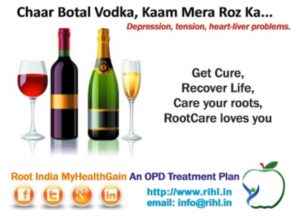 If you are struggling with depression, it is in your best interest to limit alcohol. Alcohol is a depression and can cause impaired vision, judgment, and reaction time. Many alcoholic drinks can actually be quite sweet. Here, we are talking about, a way to sabotage your mood and cause blood sugar levels to rise and crash. Although some research has shown that small amounts of alcohol, such as red wine. That can be helpful. It is in your general interest to clarify this clearly if you are struggling with depression. “Alcohol will not solve any of your health problems, as suggested by Ed; because none of the health problems are caused by alcohol deficiency.”
If you are struggling with depression, it is in your best interest to limit alcohol. Alcohol is a depression and can cause impaired vision, judgment, and reaction time. Many alcoholic drinks can actually be quite sweet. Here, we are talking about, a way to sabotage your mood and cause blood sugar levels to rise and crash. Although some research has shown that small amounts of alcohol, such as red wine. That can be helpful. It is in your general interest to clarify this clearly if you are struggling with depression. “Alcohol will not solve any of your health problems, as suggested by Ed; because none of the health problems are caused by alcohol deficiency.”
Co-recurring Disorders: Mental Health Issues and Addiction
Caffeine
Yes, caffeine can help you start your day with a boost. However, it can crash later in the day, and can make you feel like you need more to gain energy. Many Americans find themselves more caffeinated, as we drink coffee and energy drinks regularly.
A moderate amount of caffeine; two to three cups per day, however, has been linked to a lower risk of suicide.
A better option is green tea. In addition to the antioxidant benefits; green tea is also known to provide theanin. An amino acid that provides an anti-stress benefit that can be helpful for people struggling with depression.
A word from RootIndia
Our bodies interact with the foods we eat and the choices we make each day. That can affect our body’s ability to function. While there is no specific diet, that has been proven to reduce depression. We can see that there are foods rich in nutrients that can help keep our minds healthy.
It is a sensible idea to talk with your medical provider before making significant modification to your diet plan. Remember to be patient with yourself as you start trying new foods and give your body time to keep pace with the changes you are making. Making better food choices can help with your overall health and at the same time it can positively impact your emotional well-being.
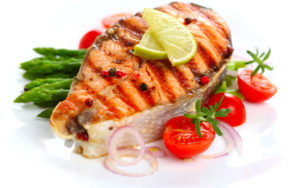
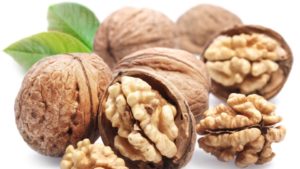
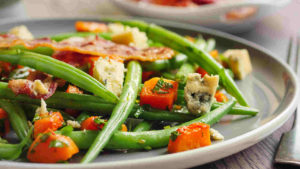
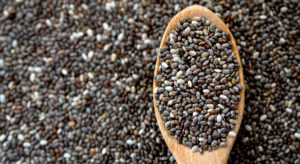
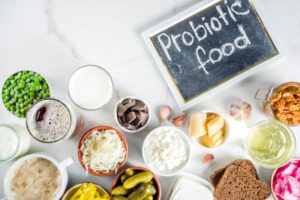
Pingback: 9 harmful food combinations you should avoid | Innovative OPD Cover | Top Health Care Company in India
Comments are closed.